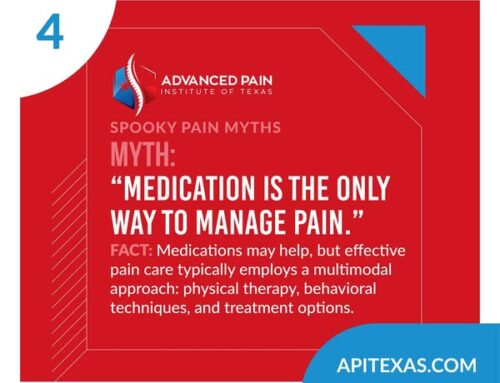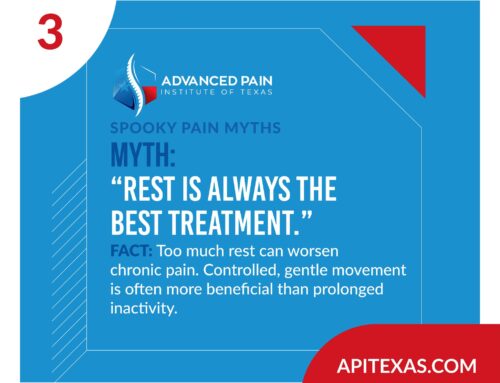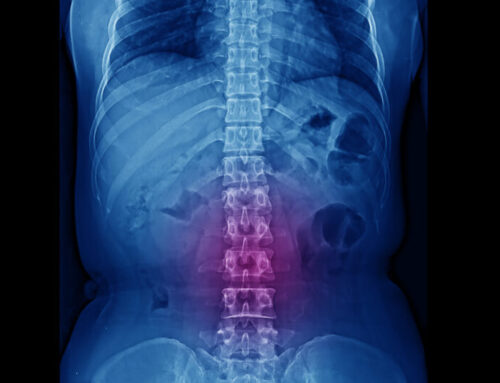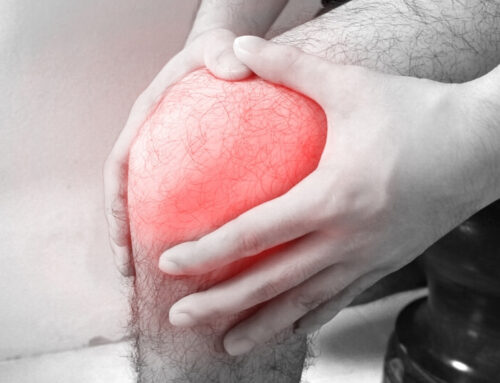
Manage Pain with a Healthier Lifestyle
Living with chronic pain can be incredibly challenging, but adopting a healthy lifestyle is one of the most effective ways to manage and reduce pain. The choices we make daily—what we eat, how we move, and how we care for our mental health—can profoundly impact how we experience and cope with pain. This article will explore practical, science-backed tips for managing pain through lifestyle changes, offering you the tools to live more comfortably and actively.
Understanding the Connection Between Lifestyle and Pain Management
How Lifestyle Choices Affect Chronic Pain
Pain is not just a physical experience; it’s closely tied to many factors in our daily lives, from our diet to our stress levels. Making the right lifestyle choices can reduce the intensity of chronic pain, while poor choices—such as a sedentary lifestyle, an unhealthy diet, and lack of sleep—can worsen it.
The Role of Stress in Exacerbating Pain
Stress has been shown to significantly impact pain perception. When you’re stressed, your body produces more cortisol, which can increase inflammation and make pain worse. Finding ways to manage stress effectively is crucial for keeping pain under control.
Nutrition for Pain Relief
Anti-Inflammatory Diet: Foods to Include
A well-balanced diet rich in anti-inflammatory foods is a cornerstone of managing pain. Omega-3 fatty acids found in fish, nuts, and seeds are particularly helpful in reducing inflammation. Dark leafy greens, berries, and turmeric are also known for their pain-relieving properties.
Hydration and Its Role in Pain Management
Dehydration can worsen muscle cramps and tension, which can intensify chronic pain. Drinking plenty of water ensures that your muscles and joints remain lubricated, reducing the strain on them.
Foods to Avoid That Increase Inflammation
On the flip side, certain foods like processed sugars, refined carbs, and trans fats can trigger inflammation, making pain worse. Reducing these from your diet can significantly help with pain management.
Exercise and Movement for Pain Management
Low-Impact Exercises for Chronic Pain Sufferers
Exercise is one of the most effective ways to manage chronic pain. Low-impact exercises such as swimming, cycling, and walking are gentle on the joints and help strengthen muscles, reducing the strain on painful areas.
The Importance of Stretching and Flexibility
Stretching can help improve your range of motion and reduce stiffness, both of which are common complaints among people with chronic pain. Incorporating flexibility exercises into your routine can also prevent further injury.
Yoga and Tai Chi for Pain Relief
Yoga and Tai Chi are gentle forms of exercise that combine stretching, strength-building, and mindfulness. Both practices have been shown to help reduce pain, especially in people with conditions like arthritis and fibromyalgia.
Mind-Body Techniques for Pain Relief
Meditation and Mindfulness to Reduce Pain Perception
Mindfulness techniques, such as meditation, help you focus on the present moment, which can reduce your perception of pain. Studies have shown that regular mindfulness practice can reduce pain intensity and improve quality of life.
Deep Breathing Exercises to Calm the Nervous System
Deep breathing helps lower stress levels and calm the nervous system, which is critical for managing chronic pain. By focusing on your breath, you can relax tense muscles and reduce your body’s stress response.
Sleep Hygiene and Pain Management
How Sleep Deprivation Increases Pain Sensitivity
Lack of sleep can make you more sensitive to pain. Studies show that people who suffer from sleep deprivation report higher levels of pain, likely because sleep is when your body repairs itself.
Tips for Improving Sleep Quality to Alleviate Pain
To improve sleep quality, create a bedtime routine that includes relaxation techniques, such as reading or deep breathing. Keeping a regular sleep schedule and ensuring your bedroom is a calm, quiet space can also help you get a better night’s rest.
Ergonomics and Posture
Proper Posture to Minimize Back and Neck Pain
Bad posture is one of the leading causes of back and neck pain. Sitting for long periods without proper support can strain your spine and muscles. Paying attention to your posture and making small adjustments can lead to significant pain relief.
Ergonomic Adjustments at Home and Work
Simple ergonomic changes, such as adjusting your chair, using a standing desk, or improving your monitor height, can make a world of difference in pain levels, particularly for those who spend long hours sitting.
Mental Health and Its Role in Managing Pain
The Link Between Anxiety, Depression, and Chronic Pain
Chronic pain is often accompanied by mental health issues such as anxiety and depression. Addressing these conditions through therapy, medication, or lifestyle changes is crucial for holistic pain management.
Cognitive Behavioral Therapy (CBT) as a Tool for Pain Management
CBT has been shown to help people change their negative thought patterns related to pain, allowing them to better cope with their condition. It’s a powerful tool for improving both mental health and pain perception.
Alternative Therapies for Pain Relief
Acupuncture and Its Benefits
Acupuncture is an ancient Chinese therapy that involves inserting fine needles into specific points on the body to balance energy and alleviate pain. Many people with chronic pain find relief through regular acupuncture sessions.
The Healing Power of Massage Therapy
Massage therapy can ease muscle tension, improve circulation, and help you relax—all of which contribute to pain relief. Regular massages are particularly beneficial for conditions such as fibromyalgia and arthritis.
Chiropractic Care for Pain Relief
Chiropractors focus on adjusting the spine to alleviate pain. This hands-on approach can help relieve tension in the back, neck, and joints, promoting overall wellness.
Managing Pain with Lifestyle Supplements
NOTE: Please consult your doctor before taking any supplements.
The Benefits of Omega-3 Fatty Acids
Omega-3s, commonly found in fish oil, are excellent for reducing inflammation and promoting joint health. Taking omega-3 supplements can support your efforts to manage pain naturally.
Herbal Supplements for Pain Relief: Turmeric, Ginger, and More
Herbal supplements like turmeric, ginger, and devil’s claw have been shown to reduce inflammation and alleviate pain, particularly in people with arthritis and joint pain.
Staying Active in Daily Life
Incorporating Movement Throughout the Day
Regular movement is essential for managing pain, but it doesn’t always have to involve structured exercise. Simple activities like taking the stairs, walking around the house, or stretching can help keep your muscles loose and reduce pain.
Gentle Exercises That Can Be Done Anywhere
Exercises like seated leg lifts, shoulder rolls, and neck stretches can be done anywhere, even while sitting at a desk. Incorporating these into your day helps maintain flexibility and reduce tension.
The Importance of Support Systems in Pain Management
How Social Support Can Help Manage Pain
A strong support system is crucial when managing chronic pain. Whether it’s friends, family, or a support group, having people to lean on can improve your mental and physical health.
Finding Support Groups and Communities
There are many online and in-person communities for people living with chronic pain. These groups can provide emotional support, practical tips, and a sense of camaraderie that helps alleviate the burden of pain.
Managing Stress to Help Control Pain
The Connection Between Chronic Stress and Pain
Chronic stress is a significant contributor to pain, especially in conditions like tension headaches and fibromyalgia. Learning to manage stress effectively is key to reducing pain levels.
Stress-Reducing Activities: Walking, Journaling, and More
Activities like walking in nature, journaling, and engaging in hobbies you enjoy are excellent ways to lower stress and, by extension, reduce pain. Finding activities that bring you joy is essential for long-term pain management.
The Role of Professional Help in Managing Pain
When to Seek Help from Pain Management Specialists
Sometimes, lifestyle changes aren’t enough to manage pain effectively. If your pain persists or worsens, it’s crucial to consult a pain management specialist who can offer targeted treatments.
Working with a Physical Therapist for Long-Term Relief
Physical therapists can help you develop a personalized exercise plan that strengthens your muscles and alleviates pain over time. Working with a professional ensures that you’re doing the right exercises for your condition.
Creating a Pain-Management Plan
Tracking Pain Levels and Lifestyle Changes
Keeping a pain diary can help you identify triggers and track what lifestyle changes are working for you. Monitoring your progress is essential for staying motivated and making necessary adjustments.
Setting Realistic Goals for Pain Reduction
Setting small, realistic goals for pain management helps you avoid frustration and stay on track. Whether it’s incorporating a 10-minute walk or eliminating inflammatory foods, each step brings you closer to a pain-free life.
Long-Term Strategies for a Pain-Free Lifestyle
Building Consistent Habits for Pain Management
Consistency is key when it comes to managing chronic pain. Building healthy habits like regular exercise, mindful eating, and stress management will support you in the long run.
The Importance of Patience and Persistence
Managing chronic pain is a journey that requires patience and persistence. While there may be setbacks, staying committed to your lifestyle changes will yield long-term benefits.
FAQs
- What is the best diet for managing chronic pain? An anti-inflammatory diet rich in omega-3 fatty acids, fruits, vegetables, and whole grains is ideal for managing chronic pain.
- Can exercise worsen chronic pain? While some exercises may cause discomfort, low-impact activities like swimming or walking are usually beneficial for chronic pain sufferers.
- How can sleep affect pain levels? Poor sleep can increase pain sensitivity, making it important to maintain good sleep hygiene.
- What are some natural supplements for pain relief? Omega-3 fatty acids, turmeric, and ginger are natural supplements known to help with pain relief.
- Does stress make pain worse? Yes, chronic stress can exacerbate pain by increasing inflammation and muscle tension.
- When should I see a pain management specialist? If lifestyle changes don’t alleviate your pain or if it worsens, consult a specialist for professional treatment options.
Share this article
Follow us
A quick overview of the topics covered in this article.
- Understanding the Connection Between Lifestyle and Pain Management
- Nutrition for Pain Relief
- Exercise and Movement for Pain Management
- Mind-Body Techniques for Pain Relief
- Sleep Hygiene and Pain Management
- Ergonomics and Posture
- Mental Health and Its Role in Managing Pain
- Alternative Therapies for Pain Relief
- Managing Pain with Lifestyle Supplements
- Staying Active in Daily Life
- The Importance of Support Systems in Pain Management
- Managing Stress to Help Control Pain
- The Role of Professional Help in Managing Pain
- Creating a Pain-Management Plan
- Long-Term Strategies for a Pain-Free Lifestyle
- FAQs











